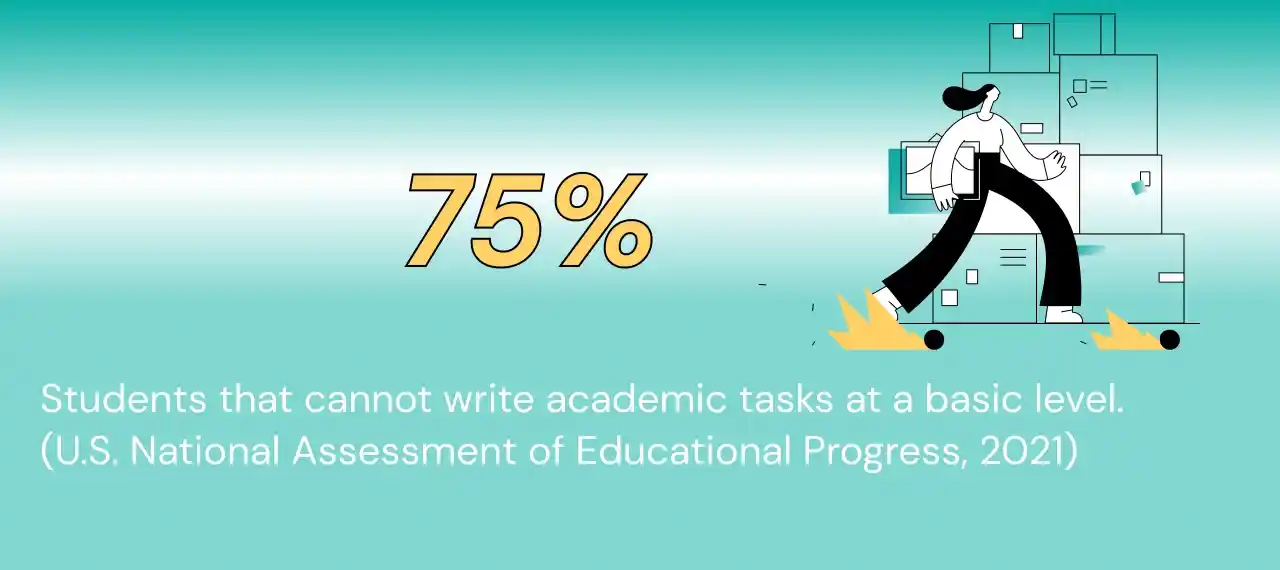Are you struggling to write an essay for your next class? Do you feel as if it’s so hard to write a piece of text that you’re about ready to lose your mind? Is everything you write sound forced and unnatural? Some advice: everyone is sometimes afraid of making mistakes. Sometimes it’s okay to not be okay. In this short overview, we go over some of the most prevalent difficulties students face when writing their essays and will furnish you with several effective study hacks to help you stay sane.
QUIZ: Overcoming Writing Struggles
This interactive quiz is tailored to assist college students in tackling the obstacles they often face while writing short essays and various tasks. Prepare to engage your knowledge and problem-solving skills. Keep in mind that there are no right or wrong answers; the goal is to encourage self-reflection and provide valuable insights for every student.
For those pursuing advanced degrees, utilizing graduate essay writing services can provide tailored support to navigate complex assignments.
Why Do Students Find Essay Writing So Difficult?
Some students struggle with the writing process. It can be overwhelming. But there’s nothing wrong with having different issues when faced with a new writing task. So, here are the most common reasons students struggle with writing:
- They are afraid of getting started. For some, it’s hard to write something from scratch, especially if you’ve got a little experience with regard to what you’re writing about. Many students feel a wave of mild unease that washes over them, which requires them to strategize and arrange their ideas. It makes the whole thing difficult. And even if this isn’t typically you, if you’re one of the lucky students to receive a 10-page PDF assignment from your professor, with a ton of recommendations and requirements, even you will mostly likely feel at least a little discouraged at the starting line.
- They can’t properly manage their time. Not everyone’s a pro at planning. Many exhausted students will feel that they’d rather not even try than try and fail. In this case, reading professionally written essay samples might help you understand where to start. Therefore, you can look through this sample essay on growth theory and find interesting ideas there.
- They aren’t confident in their writing abilities. Many students feel they’ll never be good enough to write well (for all sorts of reasons). When they start to think about how to write creative writing and perhaps past problems they’ve had with it (whatever the cause), they feel stressed and become pessimistic.
- They don’t like writing. A good essay often requires hard work. With time, it can get easier, but no matter what your level of experience, it can still be a challenge. It’s hard to persuade yourself to enjoy writing overnight.
- They don’t have enough motivation. Students get depressed, demotivated, exhausted, and tired for all sorts of reasons. Particularly when you’re depressed, the writing process may not be something you’re looking forward to.
- They struggle to develop coherent ideas and sentences. Many students find it difficult to write complex and well-formulated sentences. So, the entire essay seems like an unbearable task.
- They suffer from learning problems. Dyslexia and dysgraphia are real. In recent years, more educators have become aware of this difficult reality for some of their students. It can be challenging for them to write and it may take a great mental toll on them.

Lack of Preparedness
Many students harbor the misconception that the writing process consists of just writing and editing. Lots of students hate spending a lot of time preparing, so they simply dive right into their topic and hope for the best as they go. Also, it can be challenging to write an essay about a famous book when you are unsure what to write about. In this case, look for helpful posts like this one that discusses themes in The Great Gatsby to give you some great ideas.
Leveraging an essay writing app can assist in organizing tasks and improving time management skills.
What’s so bad about it?
If the writer can’t make a basic outline, their essay is more likely to turn out sloppy and unclear.
What to do?
Instead of trying to write everything in one sitting, be smarter with the process. Make a short draft beforehand and think about what you’d like to say in your text.
Construct a basic sketch or mental diagram to align your thoughts. Make rough estimates on how much time you have in general and divide your efforts between the available time frames. Keep in mind other projects that need completing.
Fear of Making the First Step
For a lot of people, starting an essay can be a nightmare. The blank page is a fearful thing for many creators afraid of messing up right from the beginning.
What’s so bad about it?
This issue leads to stagnation. Of all the essay writing problems, this one can be the most harmful because it delays the writing itself. You won’t improve if you obsess about doing everything perfectly straight away. The cause of this is often the fear of failing.
What to do?
Mess up on purpose when beginning your essay. For example, take out a piece of paper and make your first draft or your first lines as bad as possible. Alternatively, just write anything without really thinking too hard about it.
Michelle Brown, a professor of Academic Writing says, “During my career, I’ve noticed that some students aren’t bad at writing. They just are so afraid of displaying poor writing skills that they display nothing. That’s why I make sure to dedicate the first few classes to freewriting and ideation sessions to help them feel more creative and conquer the block.”
Doing Everything at the Last Moment
One of the common problems students tend to face is procrastination. Struggling to write essays can be a result of an unwillingness to get the work done as opposed to going to a party or taking a nap. Or maybe a few naps.
What’s so bad about it?
Trying to write everything a few hours before the deadline can affect the quality of your writing.
What to do?
Make a calendar for the tasks that you know you’ll wind up putting off. For example, use a Google Calendar, Todoist, or Calendly. You will notice that you won’t find your next assignment so difficult to write when you have sufficient time to think about what you’re doing.
Recommended reads
Michelle Rogers, a 4th-year student in the Classic English Literature department shares, “I used to think ‘I can’t write essays, that’s not for me.’ I was actually ready to change my major because of the amount of essays I had to write. But once my friend Linda made me install some planning apps and make a physical wall calendar, I realized that my biggest problem was that I just tended to delay my writing tasks.”
Fear of Criticism
Essay writing is about being assessed by someone. Whether we want it or not, academic writing usually means that a professor or someone else will assess what we did, grade us, and give feedback. It’s okay to be afraid and really struggling to write, but if people don’t address this issue, they might get stuck in this never-ending circle.
What’s so bad about it?
Everyone experiences difficulties with essay creation. But if you focus only on your so-called “poor writing skills,” you don’t allow yourself to grow.
What to do?
Allow yourself to view adequate criticism and feedback as essay writing help, not an attack. Don’t let grades or critical comments define your personality. For example, a good exercise is to save your papers, highlight the instructors’ comments and perhaps write down your own, and then store them in chronological order so you can go back and review them and see how you progress. You’ll be surprised how much you’ll improve when you consciously try to grow. Also, ask others for feedback because it will help you improve your work.
Going on a Hiatus
Sometimes people start out strong and enthusiastic, dedicated to becoming the next Mark Twain. However, they soon face a difficult part of writing: the wall. Perhaps it’s the result of a boring topic or the sense that all their words are used up, but for one reason or another, the words just stop flowing.
What’s so bad about it?
When you can’t write essays for a few hours or days (if you have a longer deadline), it’s fine. But the longer you go without writing, the harder it can be to get started again.
What to do?
One of the best things you can do when encountering such problems is to just write something. It doesn’t have to be perfect, smart, or outstanding. Just put down some words to break through the wall of silence in your head. Find a quiet space, eliminate distractions, and create a focused work environment.
Bob Beischel, a professor of Creative Writing insists, “A great essay isn’t always born out of a long arduous period of intense thought. I’d say that the best thing you can do is remind yourself that when you’re writing, no one sees it. Don’t stress about it. Run, sketch, listen to music, do anything that makes you feel better, then stride across that imaginary line or barrier. You’ll notice that the stress has miraculously disappeared.”
Difficulties Can Be Dealt With
Now, we hope that you don’t dread essay writing so much and aren’t still feeling like your next assignment is impossible. Remember: although everyone can struggle with writing, you don’t have to be one of those who falsely believe that they’re just not going to be able to write anything, ever. It’s important to recognize the reasons studying is difficult—like lack of focus, overwhelming expectations, or simply not knowing where to start—so you can address them head-on. When you take some simple steps to help yourself, you will reach your goals and overcome them. We’re sure of it.





